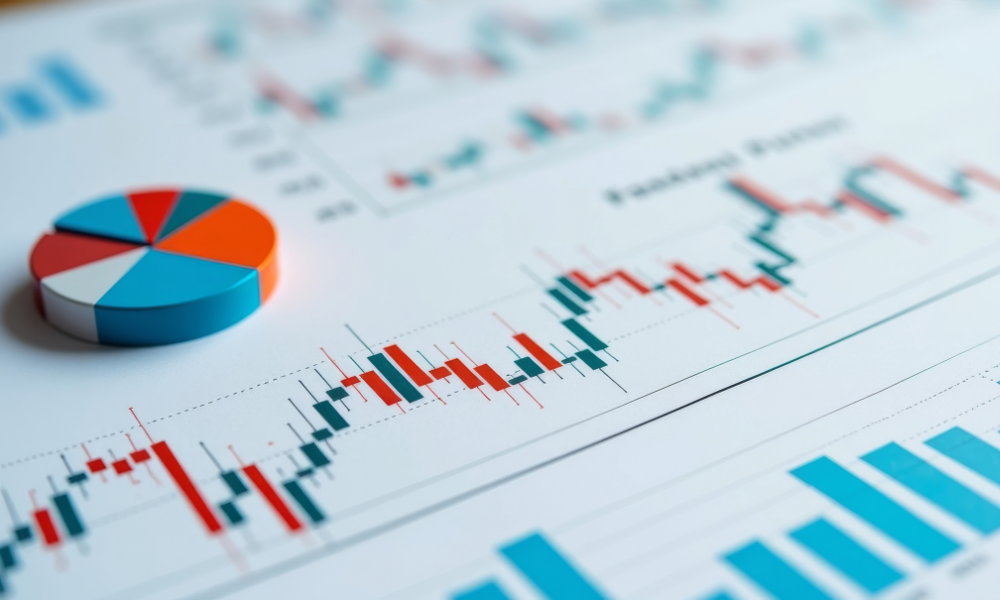ETF expert says recent volatility is "more of a heartburn than a heart attack"
.jpg)
The return of volatility is more of a heartburn than a heart attack, according to an ETF industry expert.
Karl Cheong, head of ETFs at First Trust Portfolios Canada, said that concerns over peak liquidity in the market are well-founded given the interest rate policy of the US Federal Reserve and the Bank of Canada.
But he argued that despite the tightening economic conditions, markets are still stimulative and that it’s normal to see marginal players come under pressure as liquidity starts to dry up.
The fear kicks in over whether the liquidity evaporates too fast, prompting everyone to cast a wary eye on the yield curve – the ten-year has dropped below 3% - and signs it is inverting, a historical signal of impending recession.
In this instance, however, Cheong believes the bond market is off-target.
He told WP: “We think the bond market is a very undesirable place to be right now – it’s overvalued, crowded, expensive and vulnerable. And we think it’s wrong in the sense that on the long end of the curve, there’s lots of buyers and the yields have come down [but] there’s no sign of a pending recession.”
Cheong held up two examples of how the yield curve is not a fool-proof method of predicting a major downturn. Back in 1971, the 10-year was 5.81%, while inflation over the next 10 years was about 8.6%, so at an annualized rate the bond market underestimated where it was heading over the next years.
On the flipside, 10 years on in 1981, the 10-year was at 15% and then inflation over the next 10 years was about 3.9%, massively overestimating inflation.
He said: “It’s not infallible, it can be wrong. We just think GDP and corporate profits is showing such robust growth that we are not heading into recession. We just had all this tax reform and regulation, so this is more of what we call a heartburn not a heart attack!”
Normal market conditions have returned, however, and 2019 promises more volatility. Cheong said 2017 was a gift to the investment world and made everyone look “super smart”, but having hit peak earnings growth and peak liquidity, and with other places around the word still stimulative – like Japan and Europe – more rollercoaster rides are in store.
“You look back at the last 10 years, it’s been a really great ride if you are a US-focused investors, so I would say there is a lot more choppiness [ahead] than we have had historically.
“This is more normal. VIX at 10 is not normal; VIX at 15-20 is normal. It shows we are moving more from mid-cycle and now we are moving towards late cycle. Late cycle you expect lower returns and I don’t think anyone is forecasting double digits – no one is optimistic about the market. That’s a good sign in the sense that it’s not like 2007 or the tech bubble where everyone was euphoric about stocks.”
Another area where investors should be mindful is the growing gap between the reality of the fundamentals, and the volatility and fear we are seeing in the markets on a day-to-day basis.
Cheong said this is apparent when you look at how the Canadian banks reported and how the major tech companies are performing, with both doing much better than their stock prices. The S&P was in negative territory yet the third quarter earnings were up 25%, he argued.
Another theme heading into the market heading into 2019 is the idea of peak profits, and that from next quarter we will see a decline because the stimulus of the tax cuts will fade.
He said: “That means from next quarter you are going to see profits decline and potentially a profit recession. It’s just going to moderate from 20-25% to 10-15% earnings growth but you still have a very attractive [scenario].
“When you look at profits and growth around the world, it’s a lot weaker. You look at EM, China, Japan and Europe, the profits are weaker. The weakest economies in the world are suffering so just in North America, you are seeing an overall strength.”
Cheong believes the market will become a case of the have and have-nots as the companies able to harness growth will be rewarded, like tech companies.



